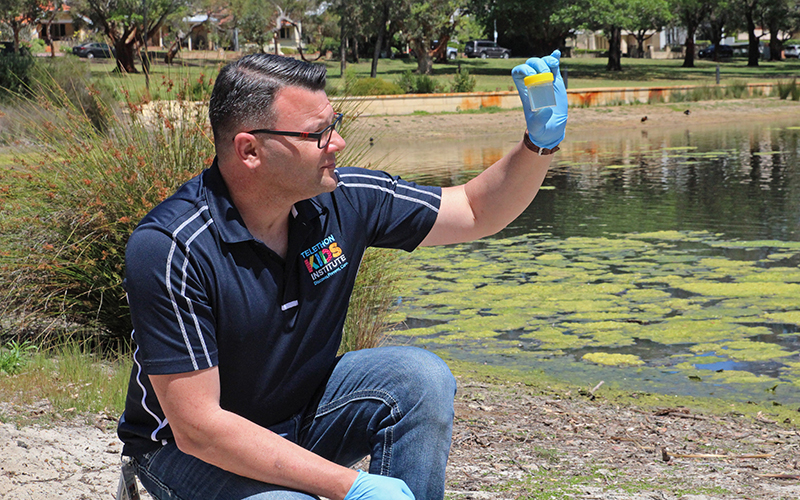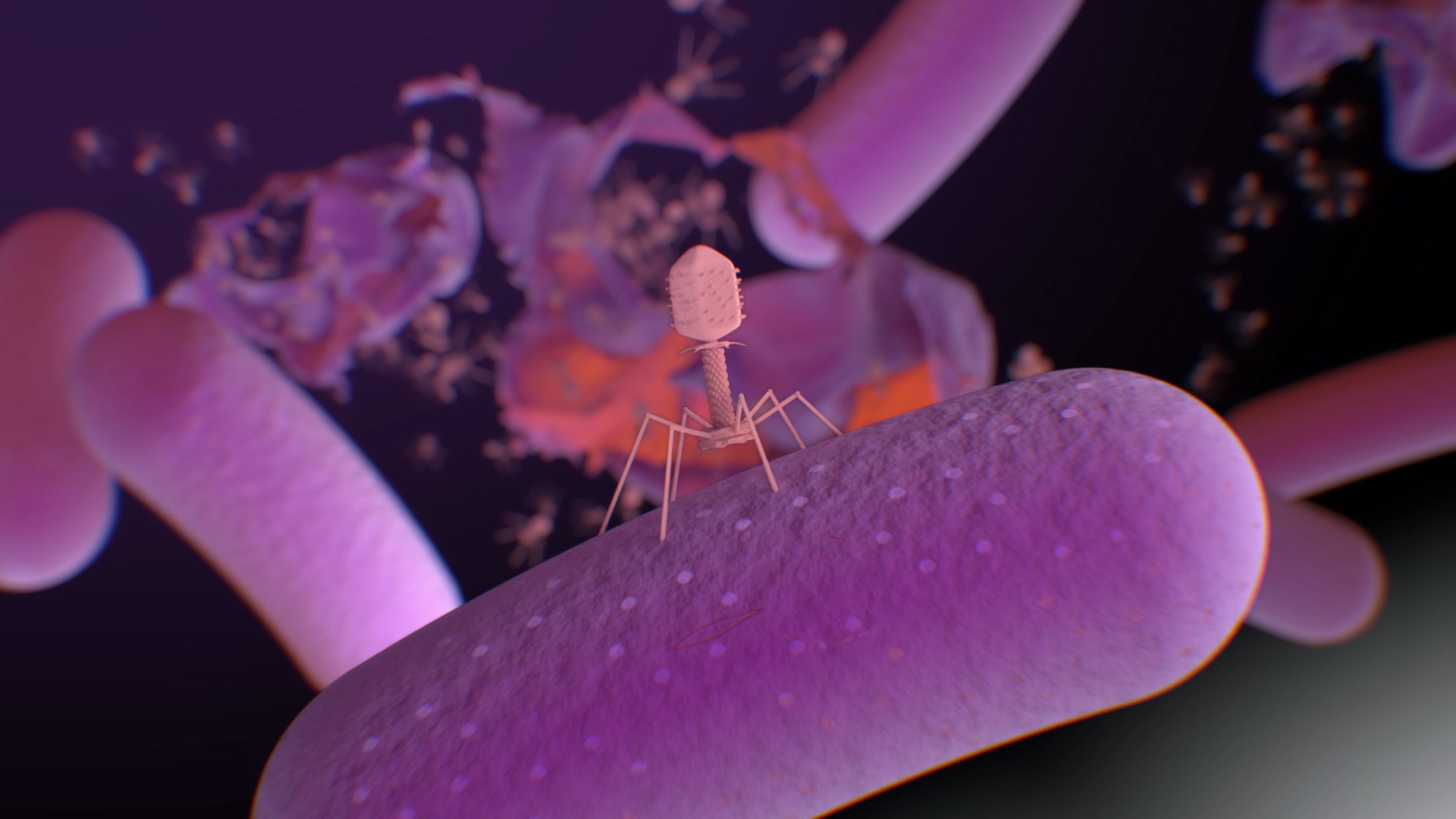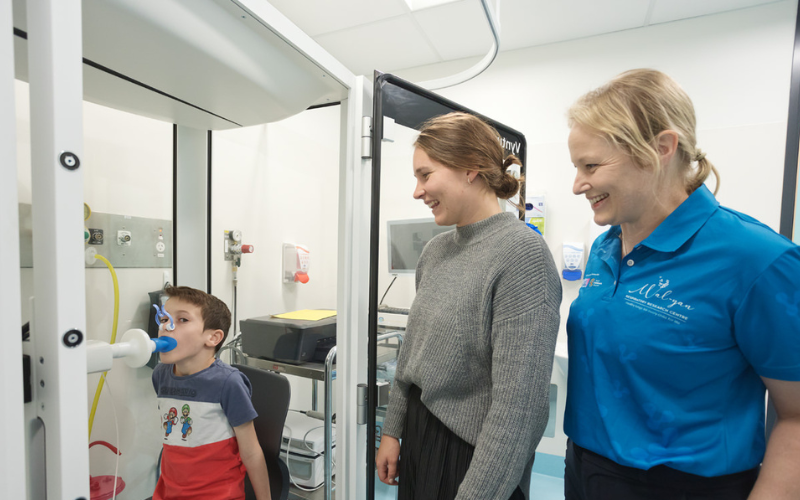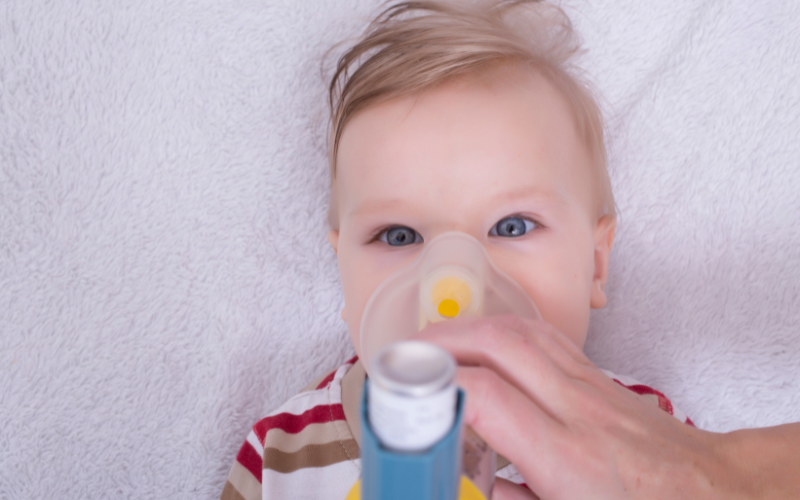Search

News & Events
Could Perth lakes hold the secret to fighting antibiotic-resistant superbugs?Perth researchers have discovered a predatory virus living in the city’s lakes and rivers that can fight antibiotic-resistant superbugs in children.
Research
Systems biology and bile acid signalling in microbiome-host interactions in the cystic fibrosis lungThe study of the respiratory microbiota has revealed that the lungs of healthy and diseased individuals harbour distinct microbial communities. Imbalances in these communities can contribute to the pathogenesis of lung disease. How these imbalances occur and establish is largely unknown. This review is focused on the genetically inherited condition of Cystic Fibrosis.
Research
BAL Inflammatory Markers Can Predict Pulmonary Exacerbations in Children With Cystic FibrosisPulmonary exacerbations in cystic fibrosis are characterized by airway inflammation and may cause irreversible lung damage. Early identification of such exacerbations may facilitate early initiation of treatment, thereby potentially reducing long-term morbidity. Research question: Is it possible to predict pulmonary exacerbations in children with cystic fibrosis, using inflammatory markers obtained from BAL fluid?
Research
Microbiomic Analysis on Low Abundant Respiratory Biomass Samples; Improved Recovery of Microbial DNA From Bronchoalveolar Lavage FluidIn recent years the study of the commensal microbiota is driving a remarkable paradigm shift in our understanding of human physiology. However, intrinsic technical difficulties associated with investigating the Microbiomics of some body niches are hampering the development of new knowledge. This is particularly the case when investigating the functional role played by the human microbiota in modulating the physiology of key organ systems. A major hurdle in investigating specific Microbiome communities is linked to low bacterial density and susceptibility to bias caused by environmental contamination.

News & Events
Wal-yan researchers to participate at scientific meeting for leaders in lung health and respiratory medicineMore than 15 researchers from the Wal-yan Respiratory Research Centre will head to the Gold Coast this weekend to take part in at The Thoracic Society of Australia and New Zealand and The Australia and New Zealand Society of Respiratory Science (TSANZSRS) Annual Scientific Meeting (ASM).

News & Events
Community bands together to improve lung health of Aboriginal children in East KimberleySeptember marks the three-month milestone of an intensive health promotion campaign in the East Kimberley region, which aims to raise awareness of the dangers of a chronic wet cough in Aboriginal children.

Meet the team at Phage WA, who are working to tackle antimicrobial resistance (AMR) through phage therapy.

News & Events
Common asthma drug gives hope for better lung health for some preterm babiesA new study has found a common asthma drug is effective for some very premature babies who go on to suffer from lung complications.

News & Events
Unravelling the mystery of persistent wheeze in children: Study reveals crucial immune cell differencesThe study found the rare immune cells, known as plasmacytoid dendritic cells, showed clear signs of activation and virus defence in children with transient wheeze, whereas in children with persistent wheeze the same immune cells showed very limited activation without any signs of virus defence.

Ferries As with previous years, attendees will be required to make their own way to the island. Rottnest Express offers discounted weekday travel
